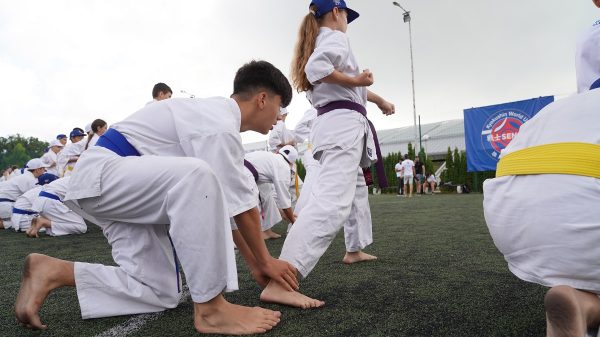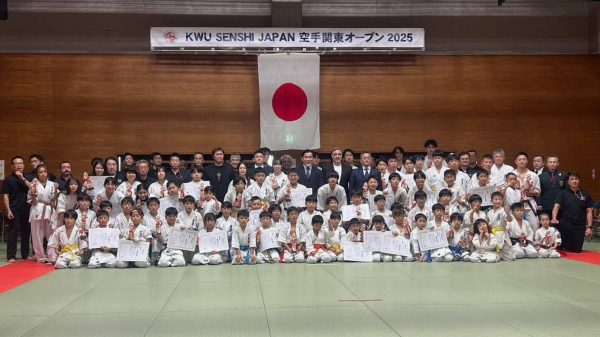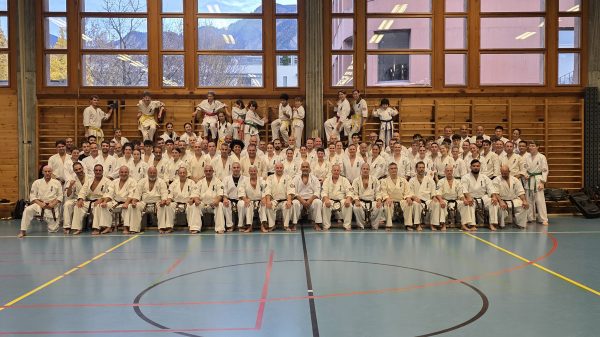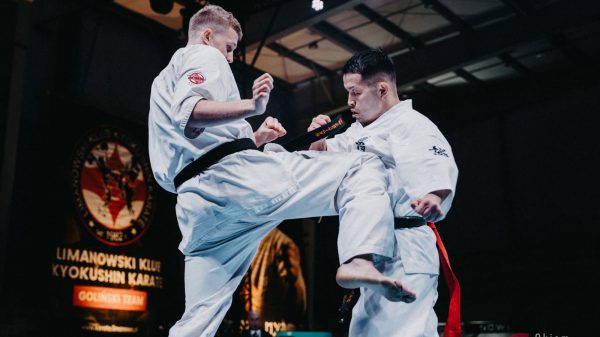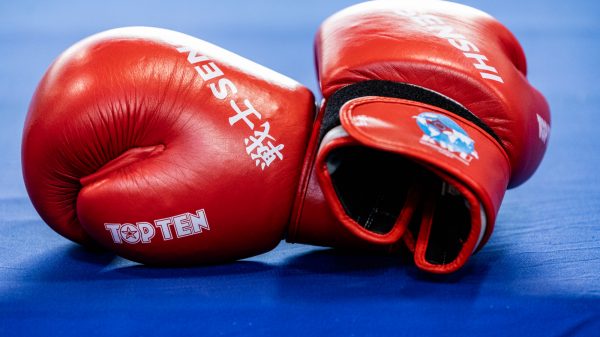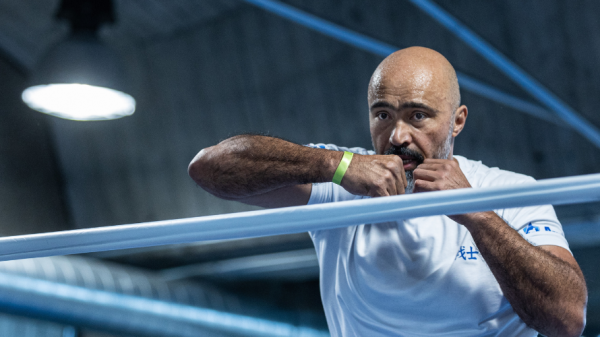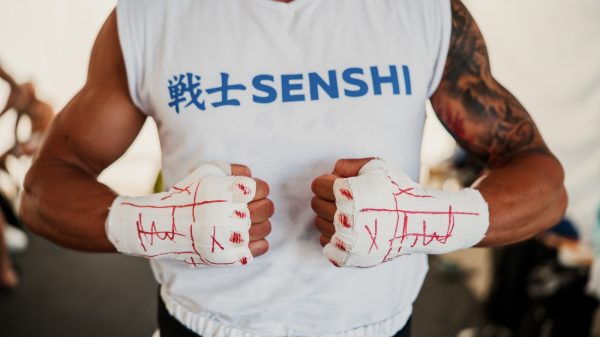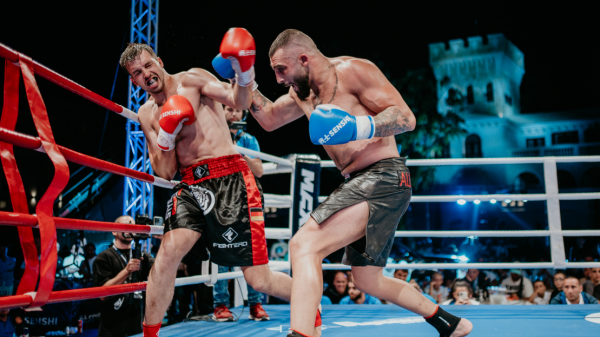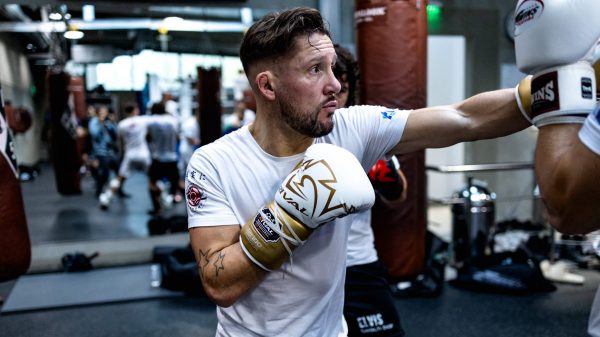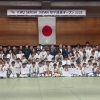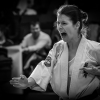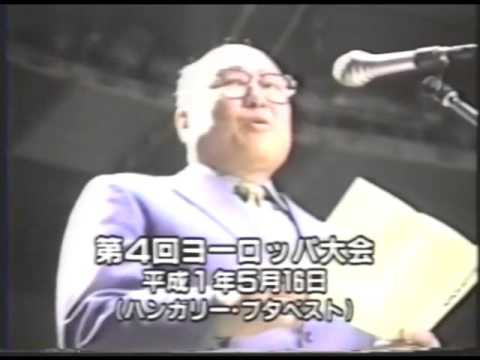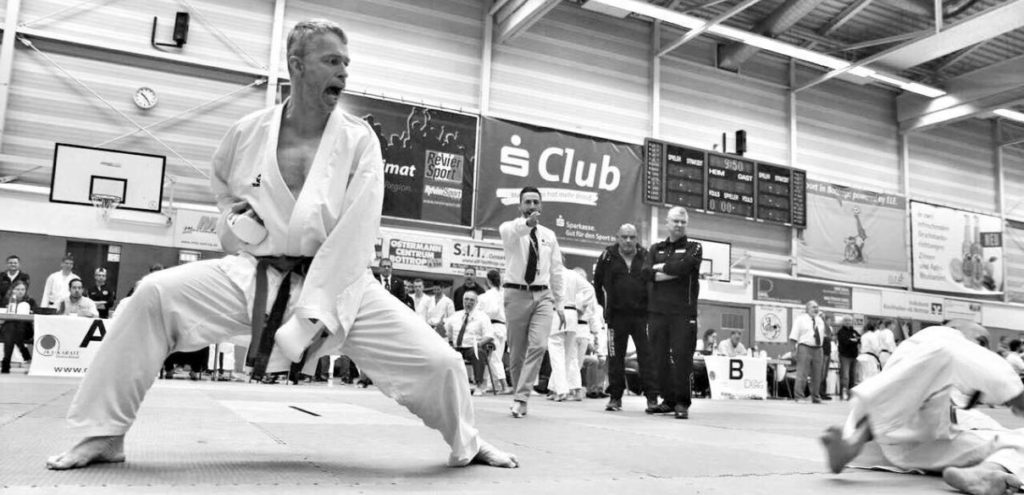
Via shotokantimes.com
The Competition Against Oneself
Christian: I would like to go a little bit deeper into the educative role of competition. Do I understand your argument right: While in Sports Karate the competition is the end, in Karate Do it is just a means to an end?
Thomas: In Karate Do, tournaments are a forum or they should be a one. It is a space for experience. And it is a space where you have to be honest to yourself. Without the opportunity to compare myself I will never truly practice. Everything I have learned in training might stay theory until I face pressure and an opponent. That not only counts for Kumite but also for Kata. Without this exposure, one will lack necessary learning experiences that are highly important to develop one´s own Do.
In my opinion, even an examination is a competition: A competition against yourself. During a tournament, we add another factor of uncertainty: the opponent. That is a challenge and it creates pressure. There you have to show how strong your Do is. Are you capable to fight honestly and loss with a smile? That is a sign of character.
Without this test, Karate Do will be cheap talk. Only a test can show whether I have incorporated the Do during training.
Competitions and the Experience of Limits
Christian: So, are tournaments a compromise between “absence of violence” (Dojo kun) and the martial arts dimension of karate do?
Thomas: Yes, you need a media and forum to experience yourself. Competitions offer this option in a peaceful and regulated way. This regulated and supervised way of conflict is necessary for the socialization of human beings and for the society in general. I must experience my limits and boundaries. Maybe a little bit like stones in a river. They grind each other and become round after a while. At the end, they fit perfectly together. Thus, competition can be integrative means. This goes also for children. They must learn to asses their own strength. If we do not open them a regulated and supervised forum, they become a factor of uncertainty in the future. Because they will not know how to handle and apply their strength in a positive and fruitful way.
Christian: How old should children be when they take part in a competition for the first time?
Thomas: I think it is not a matter of age or grade. The rules are important. Like in the JKA where Katas are executed parallel. The children have then a direct comparison. Kumite must be very formalized like Gohon, Kihon, and Jiyu Ippon Kumite. A sufficient level of certainty is necessary for children. Unexpected situations should be avoided. That is very important for them to grow and to get used to the situation.
Sports can be Karate. But Karate Do cannot be Sports!
Christian: Let us talk about the future. What do you think how will the field of competition in Karate Do evolve? This is especially interesting because Karate will become Olympic next year but was excluded from the Olympics 2024. e
Thomas: This is what I expected. The WKF did not represent the whole Karate community and it did not spend much effort to integrate the other associations. It seems as if the committee in France recognized this. In my opinion, Olympic competitions would have become to elitist anyway. Only professional fighters were capable to start at the events and they would have not much in common with regular Karatekas.
I would suggest something different: We need an open tournament for all Shotokan Karate Do associations. Currently, every association – if big or small – is a silo. They all should agree upon a certain set of Shobu Ippon rules and have joint tournaments.
But we should go back to the roots. That would lead to less big competitions like Olympics. It would be better to hold a bigger number of smaller tournaments where more people could attend. The Olympics are good for the media. But for the vast majority of people, it is too far away from their reality. Smaller tournaments would benefit more people. They all could make the educative experience of competitions. Big tournaments do not achieve this goal. They just monopolize the attention of the audience and the smaller structures will dry out.
In the end, Sports can be Karate. But Karate Do cannot be Sports!
Christian: Thomas, thank you very much for this interview!


